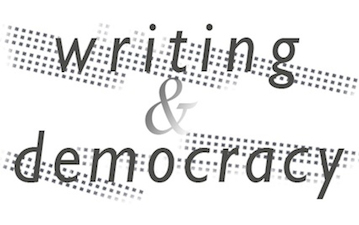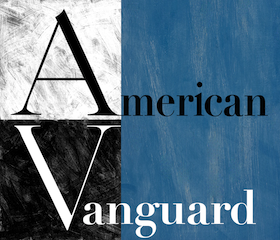Reflection: Sigrid Nunez
I started teaching in the Riggio Writing and Democracy program in 2007. My first course for the program was a seminar called “Writers on Writing.” I had never taught such a course before; I created it specifically for the Writing and Democracy program. It had always struck me how, more than any other artists, writers are often asked to state why they do what they do. I wanted to teach a course examining ways in which writers have described their work and the writer’s place in society. The reading list for... Read The Rest →
Reflection: Suzannah Lessard
While my primary perch at the New School has been in the MFA program, I was immediately attracted by the idea of teaching in the Riggio Program. It was the title, “for Writing and Democracy,” that thrilled me. This is because I have long seen non-fiction especially as belonging in the arena of our public life. And yet, in my experience, the culture of creative writing programs does not include a strong sense of this, despite the fact that so many of the great forms of non-fiction, such as literary... Read The Rest →
Reflection: Catherine Barnett
We were a motley and fragile bunch. One student spoke so quietly we had to keep the windows closed and lean in whenever she spoke. The hurricane had blown through us all. It was our penultimate class and each student had brought in a new poem to revise. As a kind of warm-up to the hands-on work of revision I’d planned for the session, I spontaneously decided to ask the students to try to shout their poems. (I’d just had the pleasure of visiting Craig Teicher’s MFA workshop, where Dottie... Read The Rest →
Reflection: Elizabeth Gaffney
From Herman Melville to Haruki Murakami, from Lorrie Moore to Philip K. Dick, my students have loved and hated the stories and novels I’ve given them to read. They’ve written works that are real literary triumphs and turned in some awfully big messes. I sometimes think I like it best when they hate the texts we read together—what passion, what ruthless analytical insight! And I definitely love it when they take the gigantic risks that sometimes lead to flops—what vision, fresh forms, and wonderfully weird ideas! For when can one... Read The Rest →
Reflection: Rene Steinke
The students in the Riggio Program are unique and uniquely talented. Many of them have had unusual life experiences prior to coming to the New School, and they often express a kind of urgency and passion for their education—these students do not want to waste time. I became a member of the Riggio Honors Program faculty in the Spring of 2007, and it has been one of the richest, most rewarding teaching experiences in my career. The students are devoted to writing, and their thinking about language on the larger... Read The Rest →
Reflection: In the Fields of Light / Luis Jaramillo
When we interview TA applicants for the Riggio program we ask applicants to teach a ten minute close reading lesson on a short piece of text. We (usually Laura Cronk, a current TA, and I) pretend to be undergraduate students. There are many ways for the lesson to go badly—the applicant lectures us rather than asking questions, the applicant declines to bring copies for us to mark up, the applicant tries to cram a discussion of a 20-page short story into the allotted time, the applicant tries to lead us... Read The Rest →
Profile: Greil Marcus / Ashawnta Jackson
In a recent interview with Columbus Alive, writer and Riggio Honors Program: Writing and Democracy faculty member Greil Marcus had this to say about how he approaches music writing, “I’m really more interested in how does a performer or just a song develop a language that’s different, and how do we learn that language? How do we respond to it?” This idea, that music has a language, a specific and important language is one that’s worth exploring. The sounds of blues guitar or the thumping bass of electronica are all... Read The Rest →
Reflection: Greil Marcus
I joined the Riggio program in Writing and Democracy in 2007, and with the exception of 2008 have taught in the program every fall semester since. My main responsibility has been the ULEC undergraduate lecture course “The Old Weird America—Music as Democratic Speech, from the Commonplace Song to Bob Dylan.” The theme of the class, which enrolls between 90 and 100 students, with the participation of four to five Writing Program TAs, is the American folk song—including ballads, blues, blackface minstrelsy, and so-called folk-lyric compositions, where hundreds of floating verses... Read The Rest →
Reflection: Laura Cronk
Jamaica Kincaid recently came to the New School as a part of the Pen World Voices Festival. She was asked why she writes. She said that she wants to tell the truth. Somehow this answer didn’t quite suffice and she was asked, several more times and in different ways, why she writes. She answered again that she wants to tell the truth. This exchange made me think of our students, our exceptional students, and why it is that they write. Our students have been many things before coming to the... Read The Rest →
Impeccable Tolerance of a Brilliant Man / Eric Springer
He’s going to kill me for writing this (or maybe not). I first met John Reed during a summer writing intensive where he was teaching a two-hour screenwriting workshop. I was immediately taken by his relaxed demeanor, and the simple and easy way he taught. So much so that when, with his boyish smile, he plugged his fiction writing workshop for the following semester, I made note to attend. That fall, I went to sign up for the class and found that it was full. When I went to talk... Read The Rest →
Reflection: Tom Healy
ASHLAB: The Ashberyian Panorama Tom Healy One thing we do at AshLab—an ongoing documentary project on the life and work of poet John Ashbery—is make panoramas of Ashbery’s home in Hudson, NY. We can’t get inside Ashbery’s head, but we can put a freeze frame on the Ashberyian domestic interior circa 2013. We are using sophisticated digital cameras, but of course anyone with an iPhone can shoot a pretty cool panorama. What I love is that this now-ubiquitous tool of our culture’s relentless self-documentation has a weird and interesting history... Read The Rest →
Reflection: Mark Bibbins
William Carlos Williams wrote, “It is difficult / to get the news from poems / yet [people] die miserably every day / for lack / of what is found there.” Perhaps empathy was one of the things Williams thought could be “found there”—what does it say about our national discourse that this word has been seized by political strategists and commentators, and turned into a liability? In my classes I let people know that they can get the news from poets like Gertrude Stein and Anne Carson and Harryette Mullen... Read The Rest →

